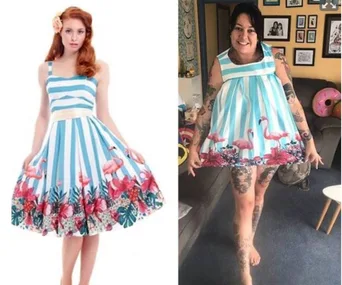Heart palpitations, deep breath, one, two, three and… look. At some point we’ve all stood at the cashpoint and closed our eyes as our balance is displayed on the screen. Apart from that one magical time my student loan instalment had been paid in early, sadly I’ve never looked at my bank balance and been surprised by how much more money was in there than expected.
And I’m in good company – according to Barclays, 37 per cent of millennials have experienced financial FOFO (Fear of Finding Out). It says a lot about just how head-in-the-sand we are about money that just looking through our own bank statements can feel like we’re surveying a crime scene.
“I don’t want to know,” my friend Lara, 32, tells me. “When I have to open my bank app I wince, and seeing my balance makes me feel hot, stressed and worried, which is the opposite of how I feel when I’m spending money. I know ignorance isn’t bliss but sometimes it feels that way.”
Money amnesia can feel like a very real thing and it’s easy to see why. One-click checkouts, contactless payments and Instagram’s ‘shop now’ have all made spending money as easy as opening a door. When a clothing store sale email hits my inbox, I can have a silk shirt winging its way to me within three clicks of the mouse. No wonder, then, that I often “accidentally” forget how much I’ve spent.
“I’ve yet to find someone who doesn’t understand the basics of money,” says financial therapist Brad Klontz. “Which is: spend less than you make and save for the future. Everyone can recite those two facts, but people still don’t do them, and as a result I think people feel an intense amount of shame.”
He’s right – money is the leading cause of anxiety, with 43 per cent of millennials losing sleep over their financial habits, yet overspending and messing up is part of being human.
With the taboo nature of money, we’ve all got very good at avoiding any conversations on the subject, even with ourselves. This means we never really get to the bottom of understanding the compulsions behind our 1am splurges or the root of our admin phobias.
“Looking at the emotions and triggers behind our spending is often far more productive than putting ourselves on a strict budget that we’ll inevitably fail,” says Brad. “Knowing why you don’t do something is more powerful than knowing you should do something.”
We’ve all got weird spending habits. Even if you haven’t yet admitted your own, I bet you’ve judged a friend for theirs. One of my friends buys another version of the same navy jumper every time she goes shopping – and doesn’t even realise she’s doing it. Another doesn’t class online shopping as actual spending because she believes she’ll send most of it back – cut to two weeks later and the Zara box is still sitting under her desk.
This is because we tend to spend emotionally. Money isn’t just maths and, just as we don’t only eat because we’re hungry, we don’t only spend money because we need something. I’ve bought shoes because I was sad, I’ve bought shoes because I was bored. I once bought a pair in the sale where the left was two sizes bigger than the right because I was drunk. If I’m honest, the one reason I have never truly bought shoes is because I needed them.
I asked friends about their latest money regrets:
“Yesterday I spent £32 on exercise classes I didn’t go to,” Anna, 29, a talent agent, told me. “Honestly, if you weren’t making me have a conversation about money, I would have pushed that to the back of my mind because I’m embarrassed about wasting that much money. What I need to learn from this is that booking classes in advance does not mean I will go – it just means I’m more likely to waste the money.”
Anna bailing on her spin class speaks to a much more common failure – that the gap between who we believe we will be and who we are is bigger than we’d like. We believe our future self will exercise, stick to a budget, start saving, and… send back clothes that don’t fit.
But it’s not just shopping where our avoidance tactics aren’t helping us. Financial FOFO extends to pensions, too. I asked Alice Tapper of Go Fund Yourself, the online platform that aims to make personal finance more relatable, why many of us aren’t saving for the future.
“You don’t wear a pension, they don’t say anything about you, no one knows you’ve paid into one and you can’t put them on Instagram,” she replies.
Indeed, we all know there’s a gender pay gap but something we don’t often talk about is the pension gap. Right now the average man is accumulating five times the pension pot of the average woman, so it’s more important than ever that we women start engaging with our finances.

But, and this is important, this is not a call to stop spending money on shoes, or a judgement-fest on the amount we waste on flat whites, headbands or Touche Éclat. Women are too often shamed for how they spend money, and that just makes us avoid our bank statements even more. This isn’t about shaming and silencing; instead it’s about encouraging and empowering us all to look at our spending with some accountability and honesty, because there’s every possibility that our money could be spent better.
Mindful spending isn’t enough of a thing but it should be. When I was 30, my salary peaked, yet because I was so haphazard with my spending, my life didn’t feel rich, it just felt full of stuff: Amazon boxes, gadgets with no cables, jeans that didn’t quite fit and dirty dry-clean-only clothes. I had a bathroom shelf filled with vitamins and lip balms I didn’t need, just because I had to walk through a Boots to get out of my local train station. It was only when I looked at my spending and admitted to myself why I’d bought something – because I’d had a crap meeting at work, because I felt entitled after a hard day in the office, because I was trying to impress a friend I didn’t need to impress – that I got a grip on my budget.
Now, I have systems in place that mean I can’t avoid my spending. I’m with a digital bank and get a notification every time I spend money, including direct debits I used to forget about, despite the fact that they ‘surprised’ me each and every month.
I talk about money and ask friends nosy questions, such as: “How much do you spend on clothes every month?”
I’ve found talking to others is the only way to gauge ‘normal’. Also, saying out loud to a friend “I’m trying to not spend money on brunch/Aperol spritz/Uber” makes me accountable. So let’s stop avoiding our own money and let’s start looking at our bank balances – because if I’m going to lose sleep over anything, it’s not going to be Financial FOFO.
Open Up: The Power Of Talking About Money by Alex Holder ($27.99, Profile Books) is available in NZ from April.
This story was originally published on our sister site, Grazia.



